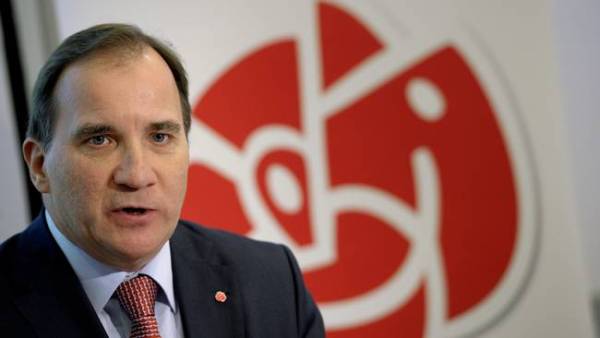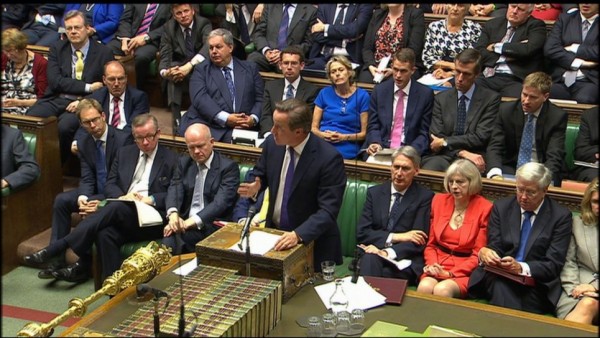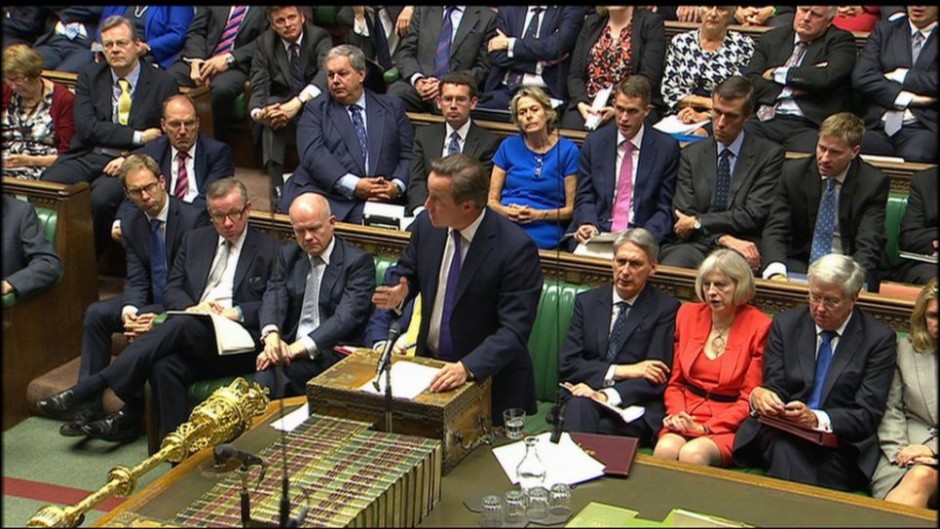Israel has mounted a campaign to squelch a diplomatic drive by major European countries to recognize a future Palestinian state.
By doing so, Israel is fighting a losing battle, and is on the wrong side of history.

In recent weeks, the new Swedish prime minister, Stefan Lofven, has expressed support for Palestinian statehood, which is long overdue, as have the British and Irish parliaments.
Early in October, in his inaugural address to parliament, Lofven disclosed that Sweden intended to be the first member of the European Union to recognize a Palestinian state. He mentioned no time lines. In mid-October, by a whopping margin of 274-12, the House of Commons in Britain passed a similar but non-binding resolution. On Oct. 22, the Upper House of Ireland’s parliament passed a motion urging parliament to recognize a Palestinian state.

Shortly afterward, the Palestinian Authority called on the United Nations Security Council to set November 2016 as the deadline for Israel to withdraw from the West Bank, where the Palestinians would exercise statehood in addition to the Gaza Strip.
The Palestinian draft resolution is clearly a tangible sign of Palestinian frustration with the glacial peace process, which has given Palestinians a measure of autonomy in parts of the West Bank, but not the sovereign state they desire and deserve.
The last round of peace talks, brokered by the United States and lasting nine months, broke down in a welter of mutual recriminations last April.
Unlike the United States or Canada, the Europeans have long supported Palestinian statehood. And in the past few months, they have redoubled their efforts to promote that worthy objective.
Three months ago, the foreign ministers of the European Union issued a joint statement criticizing Israel’s policy in the West Bank — singling out continued settlement expansion, Jewish settler violence against Palestinians, the “worsening of living conditions for Palestinians,” and house demolitions, evictions and forced transfers.
The statement warned Israel that the future of bilateral relations with the European Union was conditional on Israeli — and Palestinian — “engagement towards a lasting peace based on a two-state solution.”
Two weeks ago, Catherine Ashton, the European Union’s chief foreign policy official, issued an almost identical communique.
Last month, the foreign ministers of Finland and Denmark, Erkki Toumioja and Martin Lidegaard, put Israel on notice that trade ties might be affected should peace talks not resume.
It’s plain as day that Israel’s goodwill and cooperation will be required for real Palestinian statehood to take effect. Israel, unfortunately, has not displayed a genuine spirit of cooperation until now. Indeed, in line with its history of unilateralism since the Six Day War, Prime Minister Benjamin Netanyahu has instead expanded settlements in the West Bank, making the attainment of peace all the more elusive.

Israel’s unilateral policy of establishing “facts on the ground” is probably why Sweden and Britain, and now Ireland, have decided to recognize Palestinian statehood. As Grahame Morris, the British Labor Party parliamentarian who promoted the motion, said, “To make our recognition of Palestine dependent on Israel’s agreement would be to grant Israel a veto over Palestinian self-determination.”
It should be noted that the British resolution was backed by more than 300 Israeli figures, including a Nobel Prize winner, several Israel Prize winners, academics, two former cabinet ministers, Yossi Sarid and Ran Cohen, Alon Liel — the former director-general of Israel’s ministry of foreign affairs — and Ilan Baruch, Israel’s former ambassador to South Africa.
Isaac Herzog, the Israeli opposition leader, did not back the British motion on the grounds that a peace accord must be reached through negotiations. But he warned Netanyahu and his hawkish foreign minister, Avigdor Liberman, that Israel’s short-sighted policies are isolating Israel. “A cold wind is blowing at Israel from every corner of the world, but the prime minister and the foreign minister refuse to deal with the facts, and are bringing upon us a harsh political storm.”
Ofer Shelah, a Yesh Atid Party member of the Knesset, was just as blunt. The British vote, he observed, was a demonstration of impatience with Israel. “The world is sick of diplomatic paralysis,” he wrote.

In a speech on Oct. 22, United Nations Secretary General Ban Ki-moon summed up the prevailing mood, calling on Israeli — and Palestinian — leaders to halt “unilateral initiatives” that fuel mistrust and thwart peace. Speaking to the Security Council, he declared that Israel’s occupation of the West Bank, which “has grinded on for nearly half a century,” must end.
The Arab-Israeli dispute should preferably be solved by means of direct talks between Israel and the Palestinians. Failing that, European governments will have no alternative but to endorse unilateral resolutions in favor of Palestinian statehood.
Gilead Sher, an Israeli peace negotiator from 1999 to 2001 and the co-chairman of Blue White Future, a non-partisan group that supports a two-state solution, believes that Israel should be proactive in promoting a peaceful resolution of the Arab-Israeli conflict.
In a letter to The New York Times on Oct. 14, he wrote: “Prime Minister Benjamin Netanyahu offered no concrete diplomatic strategy at the United Nations last month, nor has he since. (Palestinian Authority) President Mahmoud Abbas, in contrast, laid out his plan at the United Nations for unilaterally acquiring the world’s recognition of a Palestinian state. Israel must take the initiative and demonstrate its readiness to end the conflict … and independently delineate a border that secures a Jewish majority while encouraging settlers living beyond this border to come home to Israel proper.”

This is a sensible approach to peacemaking, and the Israeli government should take heed of it before more European leaders are forced to act on behalf of the Palestinians.
